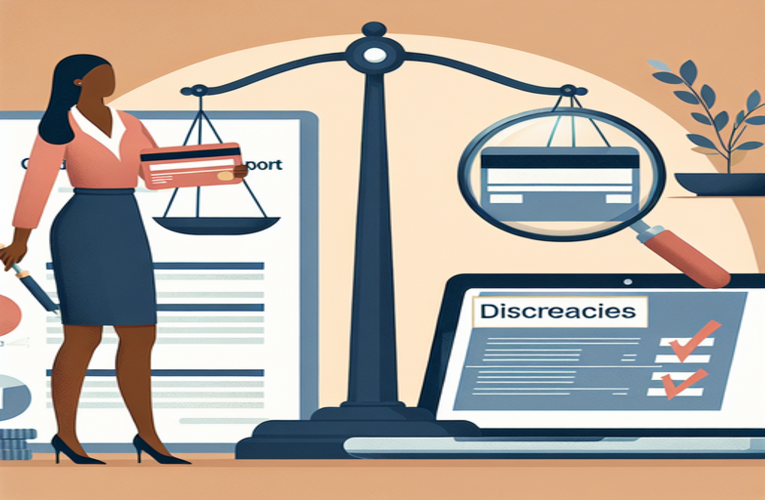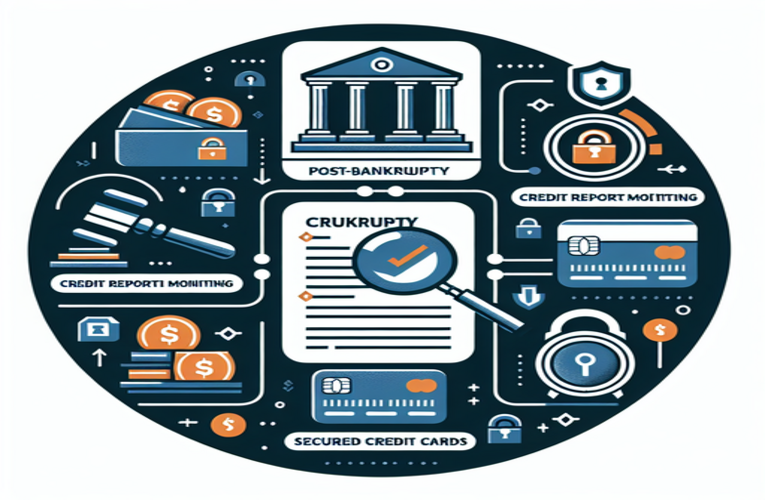Improving loan approval odds with a cosigner: understanding the impact of credit scores and documentation requirements
Navigating the world of personal loans can be daunting, especially when faced with challenges like low credit scores or limited income. However, understanding how using a cosigner can boost your loan approval odds can transform your borrowing experience. By partnering with someone who has a strong credit history, you can significantly enhance your chances of getting approved and secure more favorable loan terms.
In this article, we will explore:
- The benefits of having a cosigner for loan approval and how it can lead to better interest rates and larger loan amounts.
- How a cosigner’s credit score influences loan approvals and the importance of selecting the right cosigner.
- Essential documentation requirements for cosigners and how to prepare adequately for the application process.
By the end of this article, you will gain valuable insights into leveraging a cosigner’s support to improve your financial prospects, enhancing your loan approval odds and ensuring a smoother application process. Whether you are facing high-interest rates, struggling with bad credit, or finding it difficult to qualify for a loan, knowing how to effectively use a cosigner can be the key to achieving your financial goals.
Table of Contents
The role of a cosigner in enhancing loan approval odds
Navigating the complex landscape of personal loans can be challenging, particularly for individuals with low credit scores or limited income. In these scenarios, improving your chances of loan approval with a cosigner can significantly enhance your financial prospects. A cosigner—often a partner, family member, or close friend with a strong credit history—agrees to share responsibility for the loan, thereby bolstering your application in the eyes of lenders. For example, if you have a credit score below 580, adding a cosigner with a score above 750 can dramatically improve your likelihood of approval. Lenders perceive the cosigner’s strong creditworthiness as an additional layer of security, reducing the perceived financial risk associated with granting the loan.
| Loan term | Without cosigner | With cosigner |
|---|---|---|
| Interest rate | 12.99% – 29.99% | 8.99% – 15.99% |
| Loan amount | Up to $5,000 | Up to $15,000 |
| Approval probability | Lower | Higher |
Key benefits of having a cosigner
- Improved interest rates: A cosigner can help secure better interest rates, significantly reducing overall loan costs. Borrowers might see interest rates drop substantially when a cosigner with excellent credit is involved.
- Increased loan amounts: Access to larger loans can address unforeseen expenses such as medical bills or home repairs, or assist with debt consolidation. With a cosigner, lenders may feel more confident extending higher loan amounts.
- Higher approval odds: Lenders are more likely to approve loans when a cosigner’s strong credit history is involved. This is particularly beneficial for applicants with no credit history or those seeking to rebuild their credit.
For instance, consider a borrower with a credit score of 550 seeking a personal loan to consolidate high-interest credit card debt. On their own, they might face high interest rates or even rejection. By involving a cosigner with a credit score of 760, not only do their approval chances increase, but they may also qualify for a lower interest rate, saving significant amounts over the life of the loan.
However, it is crucial to note that the cosigner shares financial responsibility for the loan. Missed payments can negatively impact the credit scores of both the primary borrower and the cosigner. Therefore, choosing a reliable and financially responsible cosigner is essential to prevent potential issues. Open communication and a clear repayment plan can help both parties feel more secure about the arrangement.
Important considerations for borrowers and cosigners
When contemplating a personal loan, it is vital to assess the significant influence that a cosigner can have on your financial path. Both borrowers and cosigners should understand the terms of the loan agreement thoroughly. For the borrower, it’s an opportunity to access funds that might otherwise be unavailable, but it comes with the responsibility to make timely payments. For the cosigner, it’s essential to consider the potential impact on their own credit and financial situation.
Balancing the advantages against possible repercussions ensures that both parties are comfortable with the obligation. Implementing strategies such as setting up automatic payments, maintaining open communication, and regularly reviewing the loan status can help prevent misunderstandings. This collaborative approach not only facilitates a smoother loan approval process but also paves the way for a more promising financial future for both individuals.
Understanding the impact of cosigner credit scores on loan approvals and interest rates
Understanding how a cosigner’s credit score influences personal loan decisions can significantly increase the likelihood of approval. Lenders assess the combined credit profiles of both the primary borrower and the cosigner during evaluations, which can considerably affect the overall approval process and the terms offered.
Key factors in loan approval process
- Combined credit profiles: Lenders examine both the borrower’s and the cosigner’s credit scores, payment histories, and debt-to-income ratios. A cosigner with an excellent credit score can offset the borrower’s lower score, making the application more appealing.
- Risk mitigation: The presence of a cosigner reduces the lender’s risk. If the primary borrower defaults, the cosigner is legally obligated to repay the loan, assuring the lender of repayment.
- Access to competitive loan rates: Cosigners with high credit scores can help the borrower qualify for lower interest rates and better terms, potentially saving significant amounts over the life of the loan.
Influence of cosigner’s financial history on interest rates
If the cosigner has a solid financial history, borrowers may benefit from substantially lower interest rates. Interest rates could be much lower with a cosigner compared to rates without one. Maintaining strong credit scores is crucial because negative behaviors, such as missed payments, can impact both the borrower’s and cosigner’s credit reports negatively.
Benefits of selecting an appropriate cosigner
- Enhanced eligibility for larger loans: A good cosigner can increase eligibility for larger loan amounts, enabling borrowers to meet more significant financial needs.
- Favorable repayment conditions: Better terms such as lower interest rates and longer repayment periods can be achieved with a reliable cosigner, making monthly payments more manageable.
- Positive financial outcomes: The strategy proves effective for both the borrower and the cosigner if managed responsibly, potentially strengthening credit scores for both parties.
Leveraging the credit score of a strong cosigner is a wise strategy to increase the chances of obtaining a loan while also enhancing affordability. This underscores the critical role of careful cosigner selection in effectively navigating the borrowing landscape and ensuring optimal personal finance outcomes.
Essential documentation requirements for cosigners during the loan application process
Being aware of the essential documentation requirements for cosigners is crucial when aiming to improve loan approval odds with a cosigner. Lenders typically mandate specific documents from both the primary borrower and the cosigner to thoroughly assess their financial reliability and stability.
- Identification: A valid form of identification is the first requirement. Common examples include a driver’s license or a passport, necessary to verify the cosigner’s identity and prevent fraud.
- Proof of income: The cosigner must provide evidence of their income. Acceptable documents include recent pay stubs, bank statements, or tax returns. These documents demonstrate the cosigner’s capability to meet payment obligations if the primary borrower defaults. Consistent income sources and stable employment history can significantly strengthen the application.
- Credit verification: Credit assessment is another critical component. Lenders will request the cosigner’s credit report to evaluate their creditworthiness. An excellent credit score, often defined as 700 or higher, can significantly influence the loan outcome, leading to more favorable terms and lower interest rates.
- Existing debts and financial obligations: Documentation related to the cosigner’s existing debts or loans is essential. This information allows lenders to gauge the cosigner’s overall financial risk and accurately calculate their debt-to-income ratio. For instance, if a cosigner carries considerable credit card debt or has recently taken out a mortgage, this could impact their ability to guarantee another loan.
- Additional financial documents: Depending on the lender, further financial documentation might be required. This could include employment verification letters, proof of assets such as investment accounts or property ownership, and statements from retirement accounts to fully depict the cosigner’s financial situation.
Being thoroughly prepared with these documents can help streamline the application process and present the cosigner positively to potential lenders. By meticulously preparing the necessary paperwork, both the primary borrower and the cosigner can enhance their chances of securing the needed funds effectively. Furthermore, ensuring all information is accurate and up-to-date demonstrates financial responsibility, thereby increasing the likelihood of loan approval.
Summary
Understanding how a cosigner influences your personal loan application can significantly enhance your chances of approval. Here are the key insights:
- Benefits of Having a Cosigner: Utilizing a cosigner can result in more favorable interest rates, increased loan amounts, and a higher likelihood of loan approval.
- Importance of Credit Scores: A cosigner with an excellent credit score can substantially reduce your interest rates and improve overall loan terms, thereby boosting your chances of securing a personal loan.
- Necessary Documentation: Key documents required include identification, proof of income, credit reports, and details about existing financial obligations to facilitate the loan approval process with a cosigner.
In summary, leveraging the support of a cosigner can be instrumental in securing better loan terms and enhancing your financial prospects. Select your cosigner carefully and ensure all required documentation is prepared to effectively improve your loan approval odds.
Frequently Asked Questions
What are the consequences if the primary borrower defaults on the loan?
If the primary borrower defaults on the loan, the cosigner becomes legally responsible for repaying the debt. This can severely damage the cosigner’s credit score and financial standing, as missed payments or overdue balances will be reported on both the primary borrower’s and the cosigner’s credit histories.
Is it possible to remove a cosigner from a loan after it has been approved?
Yes, removing a cosigner from a loan after approval is possible, but it generally requires refinancing the loan solely in the primary borrower’s name. This process involves the primary borrower demonstrating sufficient creditworthiness and financial stability to manage the loan independently, and it may be subject to the lender’s approval.
What risks does a cosigner face when agreeing to support a loan application?
Cosigners face significant risks, including the potential financial liability if the primary borrower fails to make loan payments. This can lead to a decline in the cosigner’s credit score and overall financial health. Additionally, the cosigner may face legal actions if the loan defaults, further impacting their financial stability.
How can a primary borrower enhance their credit score before applying for a loan with a cosigner?
A primary borrower can improve their credit score by consistently making timely payments on existing debts, reducing credit card balances, avoiding new hard inquiries on their credit report, and rectifying any inaccuracies in their credit history. Building a strong and consistent payment record is crucial for boosting their creditworthiness before applying for a loan with a cosigner.
Can a loan application include multiple cosigners to increase approval chances?
Yes, some lenders permit multiple cosigners on a single loan, which can enhance the likelihood of loan approval and potentially secure better loan terms. However, the availability of multiple cosigners depends on the specific lender’s policies, so borrowers should consult with their lenders to explore this option.
How does a cosigner’s credit score influence the loan interest rates offered to the primary borrower?
A cosigner with a marginal credit score can still positively impact loan interest rates, though the effect may not be as substantial as with a cosigner who has an excellent credit score. Lenders consider the combined credit profiles of both the primary borrower and the cosigner, which can result in more favorable interest rates compared to applications without a cosigner.
What precautions should a potential cosigner take before agreeing to cosign a loan?
Before agreeing to cosign a loan, a potential cosigner should evaluate their own financial situation, understand the associated risks, and consider their relationship with the primary borrower. It is also important to thoroughly review the loan terms and comprehend their obligations. Seeking advice from a financial advisor or legal professional can provide additional insights and protection.
Which types of loans commonly require a cosigner for approval?
Loans that frequently require a cosigner include personal loans, student loans, and certain auto loans. These types of loans often necessitate a cosigner, especially for applicants with limited credit history or lower credit scores, as they present a higher risk to lenders. A reliable cosigner helps mitigate this risk and increases the chances of loan approval.




















